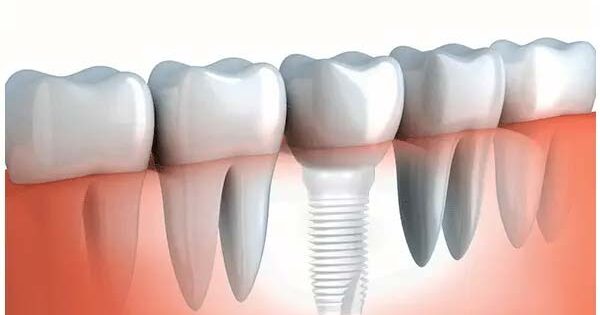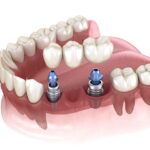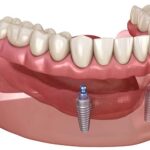ZIRCONIA DENTAL IMPLANTS
Advances in implant dentistry have led to the development of dental implants made from a ceramic material called zirconia. These implants offer a metal free option compared to traditional titanium implants.
Frequently Asked Questions
1. What is zirconia?
Zirconia is a white crystalline material manufactured from sintered zirconia dioxide. Classified as a ceramic, zirconia is non-corrosive, non-allergenic and well tolerated by the body.
2. What are the benefits of zirconia dental implants?
• No known cases of patients being allergic to zirconia.
• Other than the encased metal screw attaching the various zirconia components together there is no metal being placed in your mouth.
• Because of their white colour zirconia implants are less likely to have an adverse effect on the colour of the surrounding gum tissue. The metal colour of titanium implants can sometimes make the gum tissue appear grey.
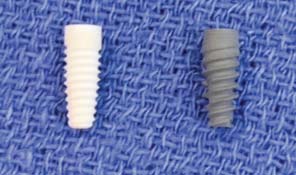
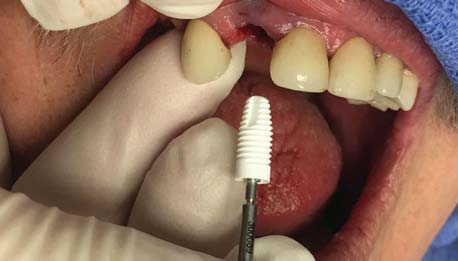
3. What are the risks of zirconia dental implants?
Besides the risk factors associated with all dental implants, zirconia dental implants also have some inherent risk factors of their own.
• Most zirconia dental implants are a one-piece post system necessary for strength, in contrast to the stronger titanium dental implants, which are a two-piece system. Chewing forces during the early stages of healing may cause a one-piece dental implant to fail because of this design.
• Compared to titanium implants, zirconia has a higher risk of failure and possible fracture particularly in the upper jaw. Some studies have shown that zirconia implants, due to their design, may be 3.5 times more likely to fail when compared to titanium implants.
• There are fewer esthetic options for making teeth on zirconia implants. Further-more the difficulties associated with their surgical placement may limit their esthetic result.
• Due to the above concerns the use of zirconia implants should be restricted to those patients with a proven allergy to titanium.
4. What are my options if I choose not to have zirconia dental implants placed?
• You may have a titanium dental implant placed instead. Studies have shown that only 0.6% of the population have a true allergy to titanium.
• You may have a bridge made to replace the missing tooth. This will involve altering your existing teeth to replace the missing ones.
• A removeable partial denture may be made to replace the missing tooth.
• You may elect to do nothing.

